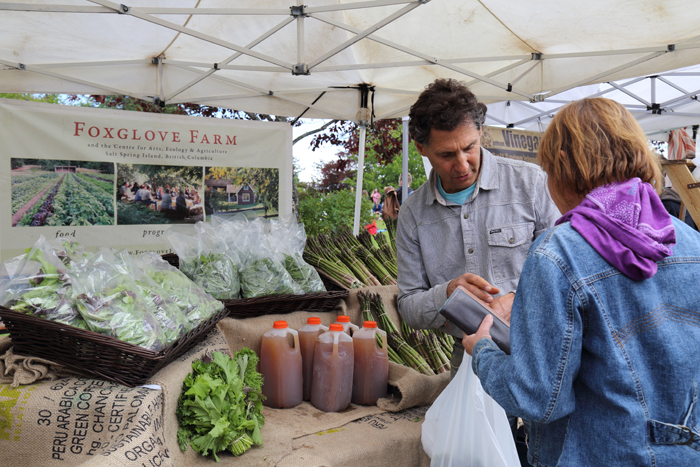By MICHAEL ABLEMAN
Every spring for the last 43 years I have followed the same routine.
I turn under green manure crops, spread compost, prepare fields, and direct seed and transplant. The seeds and small plants that go into the ground are the product of months and sometimes years of propagation work. The compost is made throughout the prior season, and the complex crop rotation and field plans are the result of a winter of careful thinking and consideration. The soils are built and improved over decades. Before the first seed gets planted, many months and thousands of dollars have already been invested into a professional endeavour that requires decades to develop and perfect.
This spring is different. I am going through all the same motions as I always have, but this time for the first time, I have no idea how the results of my labour, the food that will surely ripen, will make it into the homes and the bellies of all those on the island and beyond that we have supplied for the last 20 years. I am not alone; every farmer everywhere is struggling with the same concerns.
The Saturday market is now temporarily closed, the Tuesday market is still in question, and the restaurants on the island and in Victoria and Vancouver that we sell to are shuttered. I support every and any effort to stem the spread of this disease, but as the weeks progress there will be food to harvest and people who need it. Would it not be safer, with strict protocols in place, to purchase food directly from local farms in an outdoor space, than food from inside a store that has travelled long distances and been handled by many anonymous hands?
Vancouver’s winter market remains open and California, which now has one of the strictest lockdowns of any place in North America, has kept its farmers markets open, seeing those markets not as a social gathering space but as an essential service.
Most of my farming colleagues on the island continue to put in the long hours to do the work we love and plant food for the community. Many of us ask ourselves a simple question: how can we safely and most responsibly feed our community? Some farmers are providing food boxes on a subscription basis, others are selling to their immediate neighbours, at Foxglove Farm we are offering both home delivery and a “drive-through” pick-up option at our farm.
None of us knows for sure how long this crisis will last, but we do know we all have to eat, and now more than ever we all need to eat well. There have been significant efforts made on the island to create a strong local food system, with the Tuesday market, recent work on updating the area farm plan and many more.
It may be that the current crisis is providing us with an opportunity to create a food system that truly reflects who we are, where we live, and the reality that we may no longer be able to rely on the industrial food system that still supplies the majority of our food. We live on an island. We are now being asked to think like one.
The financial impacts of this crisis will go on long after the disease has diminished. This year there may be more members of our community who simply cannot afford to access fresh food. The responsibility for this, for making sure that everyone has a place at the table, belongs to all of us, not just the tiny percentage of our island population we call farmers. This too can be an opportunity.
Each morning I walk my fields observing, making lists, checking newly planted crops. These walks reveal new leaves unfurling, soil lifting and cracking to expose green pea knuckles, flower jackets slipping off freshly formed fuzzy apple babies, small fleeting gifts like drops of dew on taut squeaky cabbages reflecting the light of the world. But my heart and mind are also consumed by the suffering I see around me, by the internal collision between our human dilemma and the audible sigh of relief I can hear from our Mother Earth as the world pauses, and the constant assault, extraction and pollution, the grabbing and grasping, have been forced to just stop.
We may feel paralyzed when faced with the enormity of our modern dilemma, but we have enormous power in and around the places where we live. This is our time to come back home, to support all those who are re-imagining and replanting our island — one seed, one farm, one meal, one individual at a time.
Michael Ableman is an island farmer and author.

